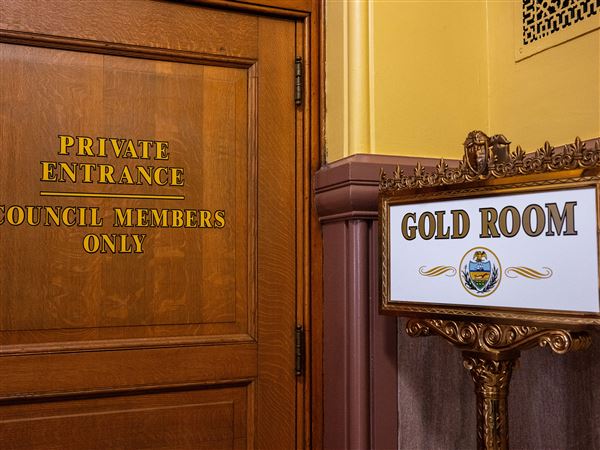LONDON -- David Lammy is still mad. In December, Mr. Lammy, a former British higher education minister, currently serving as a Labour Party member of Parliament, released figures showing vastly different success rates for white and black applicants to the country's two oldest universities. Oxford, he claimed, admitted only a single black student of Caribbean origin last year, while Cambridge, which admitted one in three white applicants, admitted just one in six black applicants.
Both universities pushed back hard, with Oxford claiming to have admitted a total of 27 British black students and Cambridge demonstrating that, contrary to Mr. Lammy's claim, the university did have black academics -- though it was unable to say how many.
"They want to get into a debate about statistics, not about substance," Mr. Lammy said in an interview, pointing out that his original criticisms were as much about the failure of Britain's elite universities to recruit a socially and geographically diverse student body as they were about the relative dearth of nonwhite students. "They want this to be about race, when it was always about class."
Perhaps because of the lack of a racial element, a recent study by the Sutton Trust, a charity devoted to promoting social mobility through education, received less attention for its report that a student who graduated from an expensive private school was 55 times more likely to be admitted to Oxford or Cambridge than a student whose family income was low enough to qualify for free school meals.
Taken together the reports paint a picture of elite institutions struggling to adapt to the modern world in a country where universities still depend on the government for most of their funding -- and where the independent Office for Fair Access is supposed to make sure that any university wishing to charge the new £9,000, or $15,000, a year maximum tuition has made sufficient progress in encouraging participation by low-income and other under-represented groups.
But have other countries done any better meeting the challenges of diversity?
Mr. Lammy points to the United States, where universities consider many factors besides test scores in determining admissions. "If you graduate first in your class in Harlem, the Ivy League schools are going to want you," he said.
David G. Blanchflower, a British-educated economist who now teaches at Dartmouth, argues that "at Dartmouth we've found those folks are really worth having."
Although the standardized test scores for students recruited from inner-city public high schools may not be as high as for students from wealthier suburbs, "the value added is incredible," Mr. Blanchflower said. "We haven't really had to compromise at all."
The French Grandes Écoles have also made a big effort in recent years to open up access to schools long considered the training grounds for the country's elite. Pierre Tapie, president of the Conference des Grandes Écoles, said that six years ago "the most intellectually selective schools, the École Polytechnique; ESSEC; the École Normale Supérieure and so on, took only 13 percent of their intake from 'boursiers,"' students whose family income was low enough to qualify for a scholarship. Today that figure has risen to 20 percent, with a target of 30 percent already reached in many Grandes Écoles.
Dutch universities are far less hierarchical, said Dirk Jan van den Berg, president of the Delft University of Technology. "We like to think we are the best for engineering, just as Utrecht has a reputation in law and Rotterdam in medicine," he said. "But there is no sense of an elite group."
Entry to most university courses in the Netherlands isn't competitive, either. Students who have completed the proper high school course are simply admitted. But in those courses, like medicine or architecture, where the state has set a limit on the number of places, the Dutch have a novel solution. "There are still no entry exams. Instead there is a lottery," Dr. van den Berg said.
Such an approach is unlikely to attract much support in Britain, where A-levels, written exams normally taken at the end of the final two years of high school, are an object of national fascination. At Oxford and Cambridge, A grades in three subjects are normally seen as a prerequisite for an applicant to be considered. A spokeswoman for Oxford said: "36,000 students got three A's last year. Of those 17,000 applied to Oxford. We have 3,000 places."
She also said that Oxford was already making a concerted effort to widen its intake. "We spent over £4 million on access last year, hosting 1,400 separate events, and making contact with 78 percent of the schools in Britain."
Last year Oxford also ran three summer schools for "students from under-represented groups," she said. All of those students attended state schools, and 40 percent of them were eventually offered places at Oxford.
But she also noted "a cultural difference" between Britain and the United States: "The exclusive focus in admissions on academic merit (rather than personal merit or the contribution you can make to the student body)." She added, "We really are obsessed with finding the most academically able person."
However, research by the Sutton Trust indicates that by using A level results as a filter, elite British universities may actually be missing able candidates. "All our studies suggest that when you enroll a state school kid they are more likely to do well at university than someone from a private school with the same A levels," said Lee Elliot Major, the trust's policy director. Mr. Elliot Major suggested that one way to overcome this was for universities to "use more contextual information" as part of the admissions process. "A poor child is more likely to be at a school that doesn't push them to reach their full potential. But when they get to university they really fly."
The French experience suggests the same. According to Mr. Tapie, students recruited to the rigorous preparatory course for entrance to the Grandes Écoles from socially deprived backgrounds typically have grades 2 points lower (on a scale of 20) than their peers. "But after two years of the course, the difference has narrowed to between 0.5 and 0.7 of a point," he said.
In Britain, elite universities often say that given the focus on academic excellence, their admissions process simply reflects the reality of a school system where although only 7 percent of students attend private schools, they make up 15 percent of those who take any A levels -- and a third of those who receive three A grades.
But Mr. Lammy remains convinced that much more can be done, calling for the current system where individual Oxford and Cambridge colleges control their admissions to be scrapped, and for outreach aimed at the country's least advantaged communities. "I think it's myopic to say that this is simply a problem of the British school system," he said. "For the premiere educational institutions in the world to wash their hands of the responsibility to dig deeper to find talent is extraordinarily complacent."
First Published: February 7, 2011, 5:00 a.m.














